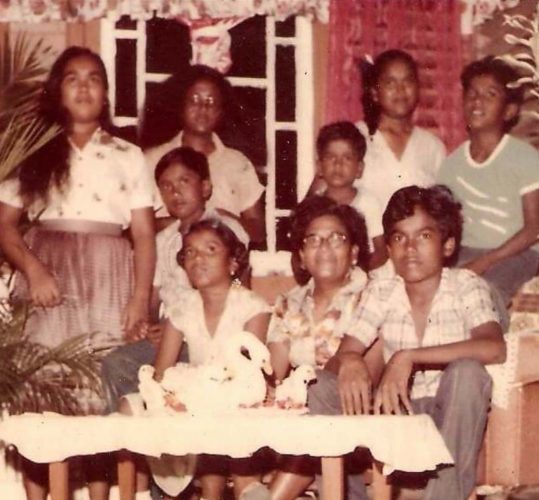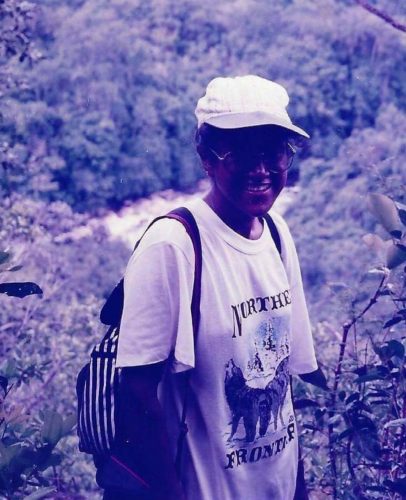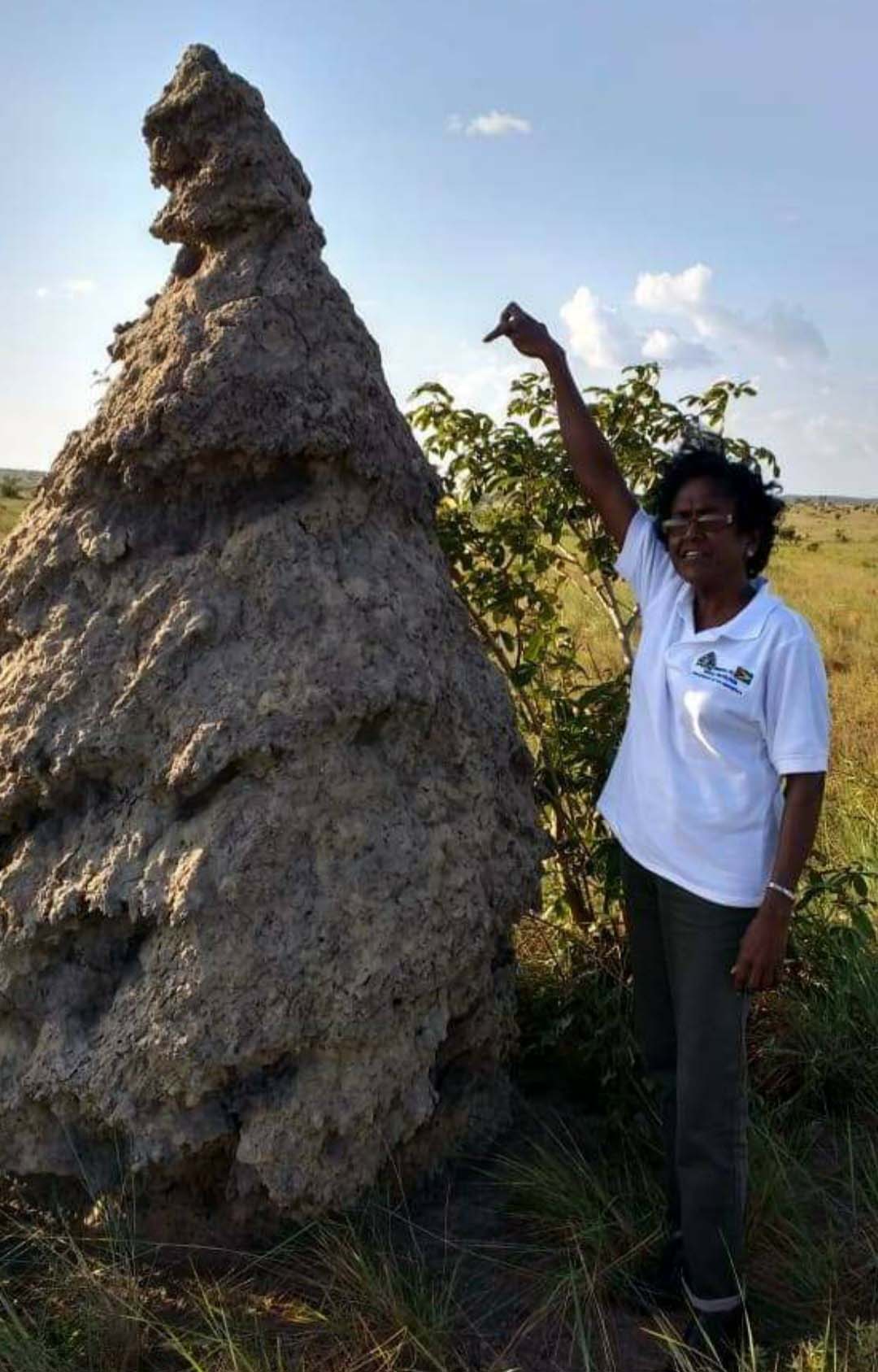Despite her professional background, Dhanmattie Sohai likes people to know she is a country girl for whom study, work and volunteerism are key parts of her life.
“Volunteerism means no payment or little payment but you gain enough skills and learn a lot for which you could be paid handsomely later on,” Sohai, 60, who has worked in regional planning, agriculture and non-governmental organisations, tells Stabroek Weekend.
Sohai, who describes herself as a development professional and practitioner, is a long-standing member on the board of managers of the Burn’s Memorial Presbyterian Church, a board member and volunteer of the Guyana Volunteer Consultancy (GVC) for over 15 years and was a board member of the Young Women’s Christian Association for some 10 years.

From Bagotville, West Bank of Demerara, Sohai, the eldest girl, is the second of 10 children, four girls and six boys. Three siblings are deceased. Her mother was a shop keeper and father, 86, a farmer.
Blind in her left eye since she was two years old, Sohai attended the then Nismes Methodist School and West Demerara Government Secondary School (WDGSS) where she was a high achiever.
“I believe God compensates people who have disabilities in different ways so we can live normal lives. I did everything that people with two hands and two eyes did and I am thankful to God for that. I always topped my classes in both primary and secondary schools. I did a lot of housework in spite of my one eye. I don’t know what it is to see from two eyes, which is one of the things I like to tell people. ‘You got two eyes, two feet, two arms, I got one eye. What stops you from achieving?’ That has motivated a lot of people.”
Having secured six subjects at one sitting of the General Certificate of Education Ordinary Levels in 1978 with good grades, almost a feat at the time, at WDGSS, Sohai went on to the Lower Sixth Form at St Rose’s High.
One day on a visit to WDGSS her former geography teacher Greta Welch advised her to apply to UG to do a double major in Geography and Economics, which the university had introduced that year because she had done well in Maths, Geography and English. The programme did not require A Levels.
“To do Geography, I was interviewed by a three-member panel. One of the panelists was the late Deryck Bernard, who told me that with Geography I will have to do field work. He asked me if my parents would allow me to go on field trips. I was offended that he would ask me that and I proudly said, ‘My parents will allow me because they usually send us to spend holidays in Leguan, Wakenaam and Essequibo Coast.’ When people see me they see a small- built someone from country but I speak well and write well too, even if I say so myself. I told the panel my father’s parents lived in Leguan, my father’s sister lived in Wakenaam and my great grandfather, who was still alive in the 70s, lived in Better Success on the Essequibo Coast and I was travelling since I was seven or eight years through primary and high schools.”

She was 18 years when she was admitted to UG in 1980. “I was in the first batch that graduated with a double major in Geography and Economics. I graduated in 1985 because I had to do a year of national service. At that time if you didn’t do national service you couldn’t graduate.”
UG and National Service
In 1982, Sohai travelled to the Guyana National Service (GNS) Centre at Port Kaituma by the MV Jaimito on a 24-hour long trip from Kingston, Georgetown. “Some of my colleagues got sick but I didn’t because I believe I was used to the ferry. I went to Leguan, Wakenaam and the Essequibo Coast on the ferry. When I was going to St Rose’s and to UG, I used the ferry even though the Demerara Harbour Bridge was open because it was cheaper. I don’t know to swim to this day but travelling on the water was no big thing for me. I have since travelled on many, if not, most of the major rivers in the country.”
At Port Kaituma, Sohai lived with people from different backgrounds in the dormitories of what was then Port Kaituma Community High School. “We called the dorms our billets. The GNS experience, many of us still say today, was a good one. We made lifelong friends. However, there were days we wished we were not there. We thought that some of the officers were unfair when some of them tried to put us down for being university students.”
A vegetarian at the time and with food shortages in the early 80s, she says that vegetarian meals meant just greens cooked in bulk. “I survived.”
“There were times we all got punished after inspection of billets because someone did not do something properly. Punishment was running around, in the hot two o’clock sun, on a red loam-surfaced drill square. Everybody looked out for each other and I think because of my size, the officers and my fellow students were protective of me.”
After the routine of the day, which included agriculture and drills, the students fetched water from the waterfront, about a quarter of a mile away, to fill up some 45-gallon water tanks for the kitchen, toilets and to bathe the next morning.
“As a country girl, I was accustomed to fetching water. The whole pack of us used to bathe in the river in the afternoons. In the evenings were national policy and cultural activities. I played the guitar with two guys and sang.”
State Planning Secretariat
One day in her final year at UG, a lecturer saw her with her passport and asked what she was doing with it. She quipped, “Everyone has a passport.” Then he told her she already had a job at State Planning Secretariat (SPS). This left her stunned. She had heard of the SPS because two of her colleagues had worked there and they returned there every holiday.
In those days getting a good job was difficult and they were all advised to apply for jobs as regional planners at the SPS. They did.
“Basically I had a job before I graduated but I didn’t know that. After graduation all of us who started UG together, did national service together, ended up at the State Planning Secretariat together.”
On the job Sohai learned that the aim of the double major was to develop a cadre of regional planners because the government had divided the country into ten political administrative regions and the graduates were to be the strategists to the decentralization of governance and the devolution of power.
Sohai was assigned as a regional planner to Region One, Barima-Waini, not her first choice. Her first choice was Region Nine.
She visited Region One periodically, going on outreaches with teams from the various regional departments into the communities in Mabaruma, Matthews Ridge and Moruca. She had first-hand knowledge of the state of public utilities and basic infrastructure so when the regional authorities made requests for certain projects, Sohai said, “State Planning found it easier to allocate funds.”
She recalled that once the chief planning officer, Dr Clyde Roopchand, had to travel for hours in the tray of a truck on a bad road from Matthew’s Ridge to Port Kaituma. It was an ordeal for him. When he arrived at Port Kaituma, he was so upset he could not eat. On his return to Georgetown he had funds released for the upgrade of the road.
In 1987, State Planning seconded three regional planners, including Sohai to the Ministry of Regional Development to better liaise and guide the regional chairmen and regional executive officers on budgeting, government policies, etc. In 1988, while at the ministry, Sohai was summoned to the Chief Planning Officer’s office and she wondered what she had done wrong.
At the secretariat Dr Roopchand told her she was being given the opportunity to do a master’s degree on a British Council scholarship. She grabbed the opportunity. She then returned to the secretariat and was placed in the macroeconomics department until the following year when she left for East Anglia University in England to pursue a master’s degree in development economics. “That year we had started the International Monetary Fund structural adjustment programme so I did my thesis on structural adjustment. During my East Anglia experience, I met many people from around the world, Africa and Asia, in particular and I still communicate with some.”
Her greatest regret, she said, “is that my mother did not get to enjoy the fruits of her sacrifices in giving me a good education. She died at 60 years, four months after I returned from the United Kingdom having completed my master’s degree. I have since become the mother figure to my younger brothers and sisters.”
In 1991, the State Planning Secretariat was restructured and as a senior planner she returned to the regional planning department as the head of department. In 1992, with the change in government she was seconded to the Ministry of Agriculture in December along with an Overseas Development Institute fellow. “We worked directly with the minister. I wrote his briefs and speeches and attended a lot of high level meetings.”
By this time, Sohai was needed to understudy the head of the macroeconomics department at the State Planning Secretariat but “Someone didn’t want me back there. I had become assertive because I knew my stuff. I decided I was fed up where I was and resigned. In 1994, after 11 years I left government’s employ and so began my foray with NGOs.”
In 1994 she joined the GVC as a project officer under Dr Leslie Chin where the focus was on capacity building for community-based organisations. She resigned at the end of 1995 and did consultancy at home until 1996/1997 when she did a full time nine-month consultancy on Geographical Information Systems (GIS). “I think I was among the first set of people to be taught GIS locally with people from the Forestry Commission, the Environmental Protection Agency, and the Guyana Geology and Mines Commission.”
IDB, USAID
In July 1997 she returned to the Ministry of Agriculture to work on an Inter-American Development Bank (IDB)-funded policy reform project as a drainage and irrigation (policy) consultant. The project had three areas of focus: drainage and irrigation, environment and land administration.
“Through that project the Guyana Lands and Surveys Commission, the National Drainage and Irrigation Authority and the board under the Pesticide and Toxic Chemicals Act were created with the relevant legislation in place. Water users’ associations were established but they fell apart.”
She eventually resigned because she could not support certain actions in the ministry’s administration that ran counter to the project’s ideals and her beliefs.
“I left an IDB project and a well-paid paid job. Many people felt I was stupid to walk away from all that money. The project was not completed but I didn’t want to be a part of a project that discriminated against one group of people… You see, I don’t like injustice and I talk up for persons if I have the opportunity.”
Unemployed again in 2000, Sohai was recruited to assist in administration at the NGO, Help and Shelter (H&S), where she stayed until December 2000. While at H&S she took part in the US State Department’s International Visitors Leadership Programme (IVLP) to see how NGOs were managed in the US. “They took us to visit NGOs at the national level starting in Washington DC then to four other states to see how community-based organisations worked.”
In 2001, USAID advertised for a civil society advisor, Sohai applied and got the job. In 2006 when her American supervisor left, she was appointed the democracy and governance advisor. She was with USAID until August 2012 when the Guyana mission closed.
“With USAID I learnt a lot in terms of elections management and administration, local government administration, rule of law/improving access to justice, legislative strengthening and supporting civil society organisations in terms of advocacy.”
After the mission closed she was home when UG recruited her to conduct two courses over two semesters. She lectured during the January to May 2013 and January to May 2014 semesters but she said lecturing was not for her.
In June 2015, by coincidence she met then minister of social protection Volda Lawrence, who offered her a job as a special projects coordinator and technical adviser on the recommendation of a friend who worked with the IDB in Jamaica. She accepted. “This IDB lady just told the minister I was a good worker and she put her trust in me. I’m thankful.”
She had earlier applied for a job with the Ministry of Local Government and Regional Development but never had a response. “I am at the ministry for seven years now where I coordinate projects on technical matters that require my skills set.”





